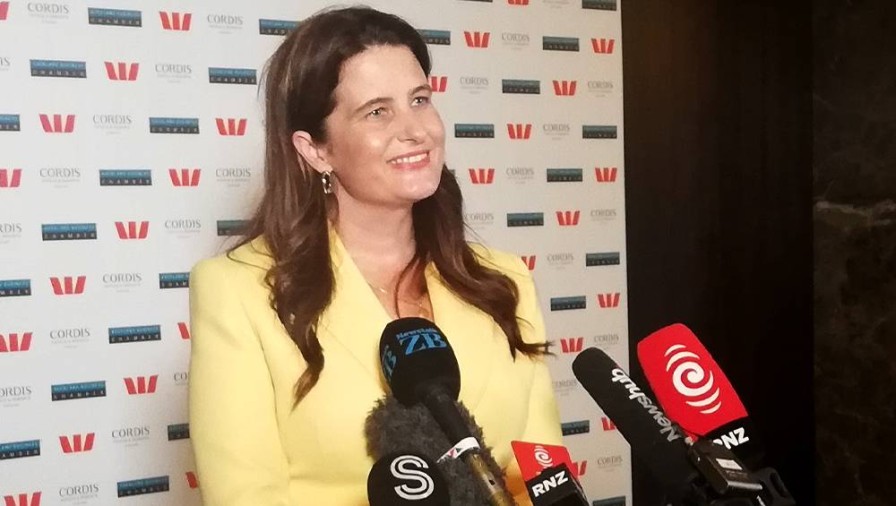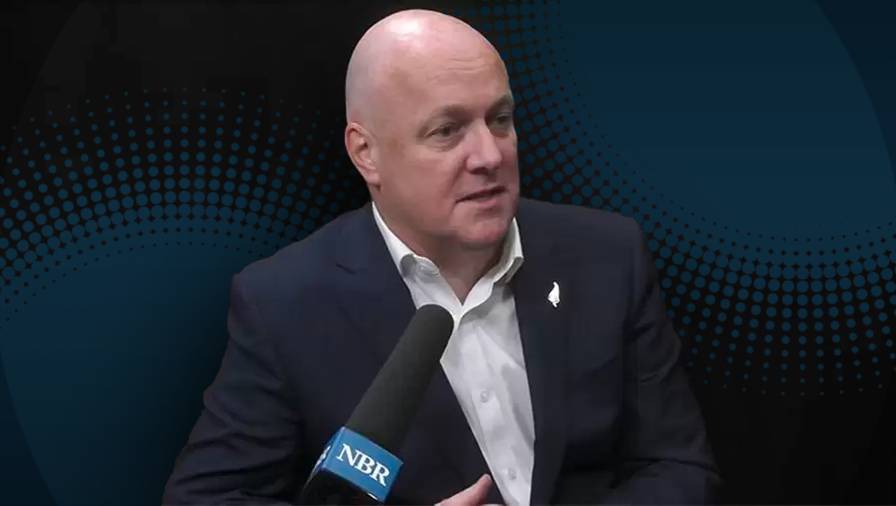Scrutiny week, cancer drugs, housing costs, A-listers
ANALYSIS: MPs had a chance this week to spend more time putting ministers under scrutiny.
WATCH: NBR political editor Brent Edwards speaks with Grant Walker.
ANALYSIS: MPs had a chance this week to spend more time putting ministers under scrutiny.
WATCH: NBR political editor Brent Edwards speaks with Grant Walker.
Parliament sat this week, kind of.
In what was a first, it held ‘scrutiny week’. It meant that, instead of the full Parliament sitting together, select committees met through the week – from Monday to Thursday – to scrutinise in more detail each minister and the money their portfolios got in last month’s Budget.
Normally, a minister might face several minutes, at the most, of questions during Question Time in Parliament. But at the select committee hearings, they face at least an hour’s worth of questioning on their portfolios and what they are doing.
Inevitably some of it was partisan, as Opposition MPs attempted to score political points and ministers skirted around difficult questions but, overall, it provided a more detailed and nuanced discussion than the theatrics that usually mark Question Time.
For example, when Workplace Relations and Safety Minister Brooke van Velden appeared before the Education and Workforce Select Committee, there were long discussions on plans to streamline the Holidays Act and on her upcoming public consultation on health and safety regulations. Similarly, Regional Development Minister Shane Jones was quizzed at length on the purpose of the $1.2 billion Regional development fund.
It most cases, Opposition MPs were given plenty of scope to ask questions and test ministers’ policies within the ambit of the Budget appropriations.
NBR presenter Grant Walker observed one comment he found interesting was the suggestion of bringing back performance pay for public sector chief executives, asking whether that would improve public sector outcomes or simply boost their pay.

Workplace Relations and Safety Minister Brooke van Velden was one of those ministers put under scrutiny this week.
Meanwhile, the Government continues to compound its failure to fund the 13 cancer drugs National promised would be paid for in the Budget. Health Minister Dr Shane Reti pledged at his select committee hearing that the funding will be found to pay for the drugs, but cancer experts now say some of them are outdated and the Government needs to update its list. There seems to be general agreement too that politicians should be the last to decide which drugs get funded and which do not.
Oncologist Professor Chris Jackson told RNZ this week that the drugs the Government is looking to fund had been put on the list three years ago, but a list developed today would be “meaningfully different”.
Jackson said the Government would be better to give Pharmac set funding for cancer treatments and let it make the clinical decisions about which drugs to purchase.
“A better way out of this would be for National to say we promise everyone who had a drug on the list they will get the same or better, which would give the experts a chance to come up with a newer list,” he said.
But National, having made its promise and facing a political backlash for breaking it, seems hellbent on digging a deeper hole for itself.
Finance Minister Nicola Willis appeared at the Finance and Expenditure Select Committee this week and also said funding the 13 cancer drugs is a priority for the Government.
Willis appeared to blame Reti, saying specific policy work he led had missed the Budget deadline. But she reassured the committee that an announcement will be made this year to deliver on the policy.

Finance Minister Nicola Willis.
Meanwhile, Housing Minister Chris Bishop might not have made many of his multiple property-owning Cabinet colleagues happy by saying house prices needed to fall further. He was questioned on his view after announcing a consultation on easing the planning rules to build small homes up to 60 square metres – or what he and acting Prime Minister Winston Peters called ‘granny flats’ at Monday’s post-Cabinet news conference. The move should save about $6000 in planning fees, but the small homes will still require a building permit.
Former Prime Minister Jacinda Ardern was also in the news, with an announcement that she would lead a new fellowship programme named Field for political leaders about leading with kindness and empathy.
“Field is hosted by Global Progress and will create a network of like-minded political leaders who use pragmatic idealism, speak to people with hope and optimism rather than fear or blame, and want to unite, rather than divide us as we look to solve the challenges ahead,” Ardern said in a statement.
The programme will begin in Europe, which might be apt, given signs the far right is on the rise on that continent.
Talking about being kind and positive or not, Prime Minister Christopher Luxon faced criticism for accusing business delegations under previous governments of consisting of B and C-lister business leaders. Luxon apparently only wants A-listers, but former prime ministers, including National’s Sir John Key, might baulk at being accused of leading inferior business delegations on their overseas trips. As it is, many of those on Luxon’s ill-fated journey to Japan have been on previous business delegations.
They might not have been so impressed with the Prime Minister’s description and they certainly would not have been happy with the travel arrangements after their Air Force Boeing 757 broke down – yet again – while on a refuelling stop in Papua New Guinea. Luxon managed to get a commercial flight out, leaving the delegation to follow a day later on a reorganised Air New Zealand flight, which picked them up in Brisbane.

Prime Minister Christopher Luxon isn’t interesting in having B and C-listers on his business delegations.
Luckily, A-lister businessman and Air New Zealand chief executive Greg Foran was on the delegation and could pull strings to have an Air New Zealand flight divert to Brisbane, after the Air Force jet managed to get the delegation that far the next day.
Here is the big question. Given Luxon’s criticism of former Prime Minister Chris Hipkins having a second plane shadow the first when he led a business delegation to China last year and the history of the Air Force plane's breakdowns, why did the Prime Minister choose to use the Air Force for this trip when everyone could have flown commercial?
It meant news coverage of Luxon’s foray to Japan has been dominated by headlines about the plane breaking down and then about the Prime Minister’s unfortunate comments about B and C-listers.
He might want to be on his 'A game' next week, as he will likely face questions on that when Parliament resumes sitting in earnest.
Brent Edwards is NBR’s political editor.
Sign up to get the latest stories and insights delivered to your inbox – free, every day.